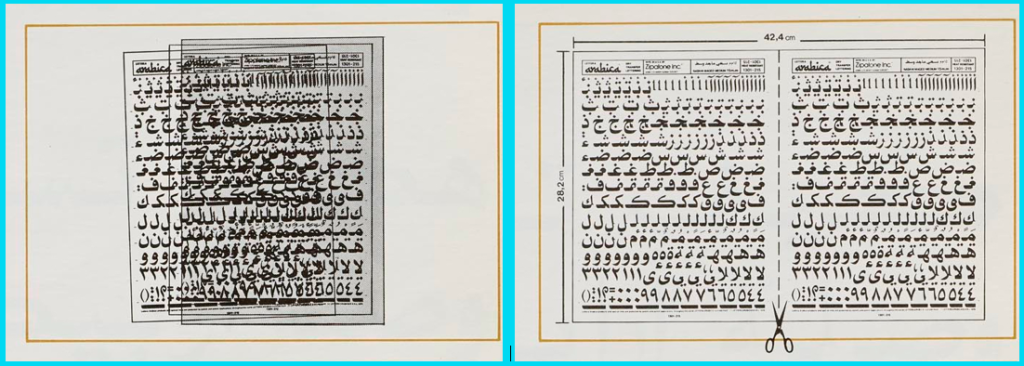Call for Papers
1980s: Representational Pressures, Departures, and Beginnings
Nov 3-5, 2022 ** in person **
University of North Texas, Denton, TX

Organizational Sponsors: Office of the President, University of North Texas; al Mawrid Arab Center for the Study of Art, NYU Abu Dhabi; Association for Modern and Contemporary Art of the Arab World, Iran, and Turkey (AMCA)
Conference Committee: Nada Shabout, Salwa Mikdadi, Sarah Rogers, Anneka Lenssen; Program Committee includes Pamela Karimi and Jessica Gerschultz
The 1980s may have reached a conclusion more than thirty years ago, but the decade’s transformations remain active in artistic practice across the countries and communities of what we now call the SWANA region (including, but not limited to, the Arab East, North Africa, Iran, and Turkey). Thanks to consumer recording technologies, experience and memory took new forms–replay and discontinuous viewing–while cultural criticism began to migrate away from the printed page. To look back on the 1980s is not to be nostalgic so much as to confront the very status of beginnings, departures, and ends. The decade features a list of political crises, invasions, occupations, uprisings, forced displacement, coups, emergent surveillance tactics, militias, and hostages, including the grim events of a catastrophic war between Iraq and Iran, that structure narratives about friendship, solidarity, and loss. And, although the 1980s brought rising enthusiasm for contemporary art as a global phenomenon, artists from the region faced a wave of anti-Middle East sentiment that coded their work as resistant or belated. Still other transitions, such as those associated with economic “opening,” came to manifest as intense attachments to things. We see 1980s-era commodities come to double as talismans for artists: a very specific paper shredder known as the Schleicher Intimus 007S; the certain cut of a leather jacket preferred by Cairo taxi drivers; a textile collage featuring doubled Jesus figure on leopard print; Doc Martens tied to a performer’s ankles in Brixton; a Nowruz variety show distributed only on videotape.[1] For every promotion of an idealized fusion of “tradition” and “contemporaneity” issued by a cultural ministry, there have been artists expressing changeable gendered and classed positions in their projects.
Few histories of modern art from the Arab East, North Africa, Iran, and Turkey have devoted attention to the 1980s apart from marking its transitional status.[2] With this conference, we seek to redress the absence. We invite 20-minute papers as well as prearranged panels that address any aspect of artistic practice, broadly defined, in this decade. Of greatest interest are papers that develop readings of specific artists, groups, exhibitions, or transnational connectivities in historical context or deconstruct apparently fixed categories. To borrow from Edward Said writing in 1982, what actual affiliations existed between the world of ideas (or images) and the world of brute politics, corporate and state power, and military force?[3] What are the stakes of specific, situated choices by artists, artist groups, promoters/consumers, or curators and collectors? What strategies are formulated, values mobilized, and expressions codified—by whom, and for whom? How to understand the impact of new initiatives, groups, galleries, and institutions, many established by women? What might we learn from this decade, and, conversely, what of its legacy should be jettisoned for the future?
Interested presenters should submit an abstract (250-300 words) and a short biographical note to the conference convenors (amcaorg@gmail.com) by April 10, 2022. For those who wish to submit a prearranged panel, please provide a short panel abstract (300-350 words) and the names of confirmed participants with paper titles.
Funding is available to support travel costs for all selected participants. We expect to be able to provide accommodations and contribute to flights.
Events concurrent with the conference will include: 1) ceremony to announce the inaugural Salwa Mikdadi Research Travel Grant launched by AMCA, 2) a funded graduate student workshop convened by AMCA (please look for a separate CFP), 3) an exhibition in University of North Texas’s CVAD Galleries, “A banquet for Seaweed: Snapshots from the Arab 1980s,” curated by Nada Shabout with loans from the Barjeel Art Foundation and other private collections.
[1] In order, items mentioned or used by artists Gelare Khoshgozaran, Hassan Khan, Gülsün Karamustafa, Mona Hatoum, and Media Farzin.
[2] One exception may be studies of contemporary art in Turkey and their questions around periodization. See the curatorial project of Merve Elveren for SALT, “How did we get here. Turkey in the 1980s.”
[3] Edward W. Said, “Opponents, Audiences, Constituencies, and Community,” Critical Inquiry 9 no. 1 (Sept 1982): 1-26.